The Lavin Agency Speakers Bureau
A speakers bureau that represents the best original thinkers,
writers, and doers for speaking engagements.
A speakers bureau that represents the best original thinkers,
writers, and doers for speaking engagements.
A digital world comes with digital dangers—here’s how to protect ourselves and our rights.
What happens to human rights when we let technology encroach on our social systems? Emmy-nominated director Shalini Kantayya explores the intersection of technology and humanity, tackling questions of innovation, ethics and bias. Kantayya’s newest film TikTok, Boom. investigates TikTok’s algorithm and users to paint a picture of the world’s most downloaded app, and how we can wield it more safely and ethically. Her previous award-winning film Coded Bias reveals the deep-seated biases behind our computers, illuminating unasked questions about prejudice in tech—Vice called it “the most important film about AI you can watch today.”
“Kantayya masterfully takes material that in other hands might become dry and academic and turns it into something cinematic.”— John Fink, The Film Stage
As technology improves at a whirlwind pace, questions of ethics and safety seem to go unanswered. With care, nuance and integrity, award-winning director Shalini Kantayya investigates these questions through a critical lens, uncovering the opportunities and dangers behind the code and looking ahead to the future of tech. Her newest documentary TikTok, Boom investigates hot topics like geopolitics, data privacy, censorship and social justice activism—wrapped up in the fascinating personal stories of three Gen Z influencers and an array of expert opinions. Kantayya captures the thrills and challenges of living in an internet-oriented landscape, demonstrating that social media is a powerful force for good if we can learn to wield it well.
Her previous critically acclaimed documentary Coded Bias reveals that machine-learning algorithms—intended to avoid prejudice—are only as unbiased as the humans and data sets programming them. Praised by The New York Times as “the most cleareyed of several recent documentaries about the perils of Big Tech,” the film follows the young Black women data scientists at MIT who found that AI facial recognition was biased against Black skin, which led to a deeper worldwide investigation about bias, race, ethics, social justice, and technology.
Kantayya’s production company 7th Empire Media works to create a culture of human rights through imaginative media. Also an eco-activist, Kantayya knows sustainable energy isn’t just right for the environment, but also promises untold economic opportunities. In her feature documentary Catching the Sun, she tells a modern story of innovation—one that’s disrupting outmoded industries and putting power into the hands of those who need it most. It explores the race for the clean energy future through the stories of solar entrepreneurs in the U.S. and China. The film premiered at the Los Angeles Film Festival and was named a New York Times Critics’ Pick. It’s also part of American Film Showcase, and will be shown at U.S. embassies and diplomatic missions around the world. The film won the Best Feature award at the San Francisco Green Film Festival, and was released globally on Netflix with Executive Producer Leonardo DiCaprio. Catching the Sun has been nominated by the Environmental Media Association for the EMA Award for Best Documentary, and has been translated into 35 languages.
Recently, Kantayya directed Breakthrough for National Geographic: a series profiling trailblazing scientists who will transform our future (Executive Produced by Ron Howard). Her award-winning sci-fi film about the world water crisis, A Drop of Life, was broadcast on national television in the U.S. and India. A Drop of Life was used as a tool to organize for water rights in 40 villages across Africa—making a real-world impact in the lives of thousands. Kantayya finished in the top 10 out of 12,000 filmmakers on Fox’s On the Lot, a show by Steven Spielberg in search of Hollywood’s next great director.
Kantayya is a Sundance Fellow and a TED Fellow. She was also a finalist for the ABC/Disney Directing Program. A William D. Fulbright Scholar, she has lectured at Princeton, Yale, Stanford, and USC, among others. She has received recognition from the Sundance Documentary Program, IFP Spotlight on Documentary, New York Women in Film and Television, and the Jerome Hill Centennial.
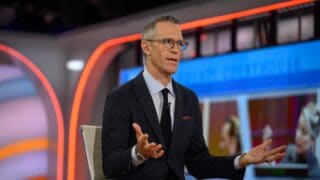
Author of The Loop: How A.I. is Creating a World without Choices and How to Fight Back NBC News Technology Correspondent Former Editor-in-Chief of Popular Science Magazine AI Strategic Advisor to Fortune 500 Companies
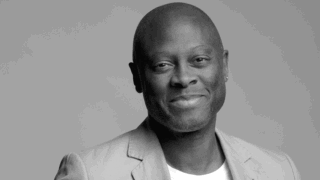
Founding President, PlusCo Venture Studio Former Chief Creative and Innovation Officer, Cossette

Speaker on AI and Education Executive Director of the Stanford Accelerator for Learning
Director of The Muslims Are Coming! Author of How to Make White People Laugh
Director of Washington Black on Hulu Co-Founder of AFROBUBBLEGUM
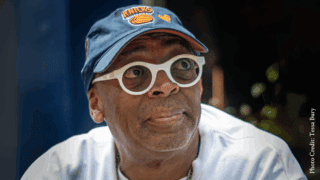
Oscar-Winning Director of BlacKkKlansman, Do the Right Thing, and When the Levees Broke

Author of The Loop: How A.I. is Creating a World without Choices and How to Fight Back NBC News Technology Correspondent Former Editor-in-Chief of Popular Science Magazine AI Strategic Advisor to Fortune 500 Companies

Harvard Economist MacArthur Genius Studying Economic Opportunity Director of Opportunity Insights

Instant New York Times Bestselling Author of Empire of AI One of the Most Influential People in AI (TIME, Business Insider) Lead Designer of The Pulitzer Center's AI Spotlight Series

#1 New York Times Bestselling Author of Grit and Situated | Pioneering Researcher on Grit, Perseverance, and the Science of Success

Nobel Prize Winner | 3rd Most Cited Economist in the World | Bestselling Co-Author of Why Nations Fail and Power and Progress

Harvard Business School Behavioral Science Professor | "40 Under 40 MBA Professor" | Author of TALK: The Science of Conversation and the Art of Being Ourselves

#1 New York Times Bestselling Co-Author of Abundance | Host of thePlain English Podcast | CBS News Contributor

#1 New York Times Bestselling Author of How the Word Is Passed and Above Ground | The Atlantic Staff Writer
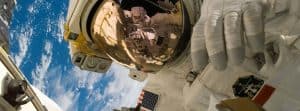
TikTok’s grip on young people is impossible to ignore—its bite-sized videos and uncannily accurate algorithm guarantee it a spot on the list of most influential internet platforms. But behind the addictive scrolling and viral dances, how much do we really know about the social media giant? In this eye-opening talk, director Shalini Kantayya teaches us about TikTok’s intricacies, advantages and pitfalls. Drawing on her 2022 documentary TikTok, Boom, which explores TikTok through the eyes of experts and young content creators, Kantayya dives into the issues surrounding the platform with nuance instead of condoning or condemning it. This talk is a fascinating, insightful examination of the way technology and entertainment interact and affect us, putting a human face on issues of privacy, culture, politics and more. Kantayya enables us to be more thoughtful about the way we use the internet, and to use social media more effectively and ethically.
Is there such a thing as truly neutral technology? What happens to our rights when we let machines govern our liberties? Award-winning filmmaker and activist Shalini Kantayya’s 2020 Sundance documentary, Coded Bias, explores how technologies are fundamentally designed with bias—specifically the biases that reflect the assumptions (conscious or subconscious) of the people who program them. In this deeply researched and engaging talk, Kantayya explores the intersection of innovation and discrimination: disrupting the belief that AI, science, and technology are inherently unbiased. She illuminates key questions about racial and gender bias in tech, data privacy, and human rights, while revealing uncomfortable truths about how these systems evolve—and how they adversely impact marginalized communities, especially through law enforcement. With warmth, wisdom, and even humor, Kantayya’s interactive talk reveals what the A.I. technologies shaping our collective future mean for civil rights and democracy; exploring how we got here, how biased tech affects the way we live together, and what we can do to course-correct in this era of rapid technological advancement.
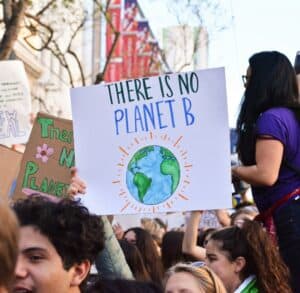
There’s a race afoot for the clean energy future—the foremost global economic opportunity of our time. Already more than half of the new energy that’s coming online globally is from renewable sources. It represents a trillion dollar industry. And all over the world, countries are making a transition. Some countries will actually leap-frog the grid and catapult into a distributed future. President Barack Obama said “the country that leads in clean energy will be the country that leads the 21st Century.” The U.S. can help lead a global transition to clean energy that can rebuild the ladder of economic opportunity in America. Solving the energy crisis could be a party of innovation, invention, and economic opportunity through disruptive technologies that democratize energy. If we are to succeed in retrofitting the nation for clean energy, a new generation of workers must be trained to confront the massive technological challenges that lie ahead. But who wins and who loses? What does building a ‘green economy’ actually look like on the ground?

Having come of age between Brooklyn and Bombay, Kantayya first became passionate about water rights while filming at the Kumbha Mela, a religious festival that happens at the confluence of three sacred rivers. She found the statistics alarming: two-thirds of the world’s people will not have adequate access to clean drinking water by the year 2027. And there are no borders to this crisis. As demand rapidly exceeds supply, every species on the planet is in danger. Your access is at risk. The question is what will you do about it? In this gripping film screening and interactive talk, Shalini Kantayya fuses personal and political to explore the mounting worldwide water crisis, helping audiences to see water as a basic human right and inspiring them to make change.
Shalini Kantayya finished in the top 10 out of 12,000 filmmakers in On the Lot, the Steven Spielberg show in search of Hollywood’s next great director. Her company, 7th Empire Media, aims to create a culture of human rights and a sustainable planet through imaginative media that makes a real impact. In this entertaining and interactive presentation, Kantayya uses clips from her award-winning films to address to talk about how to tell a story that moves the heart, reaches new audiences, and makes real change. The keynote will include an overview of framing, messaging, and the elements of how to tell an engaging story. Using a variety of visual media, this keynote shares tools on how to use the power of a story to communicate your message and drive real change.